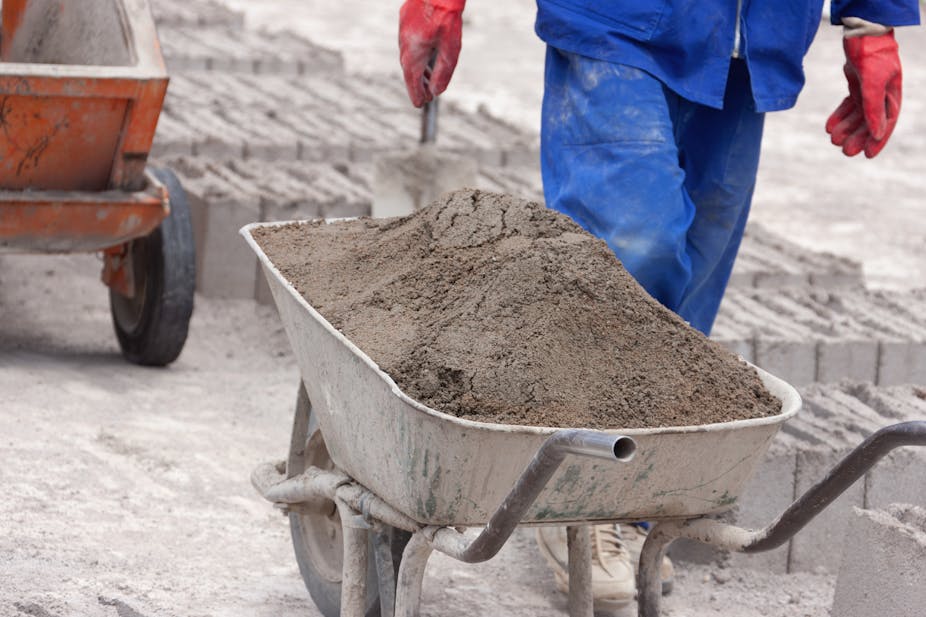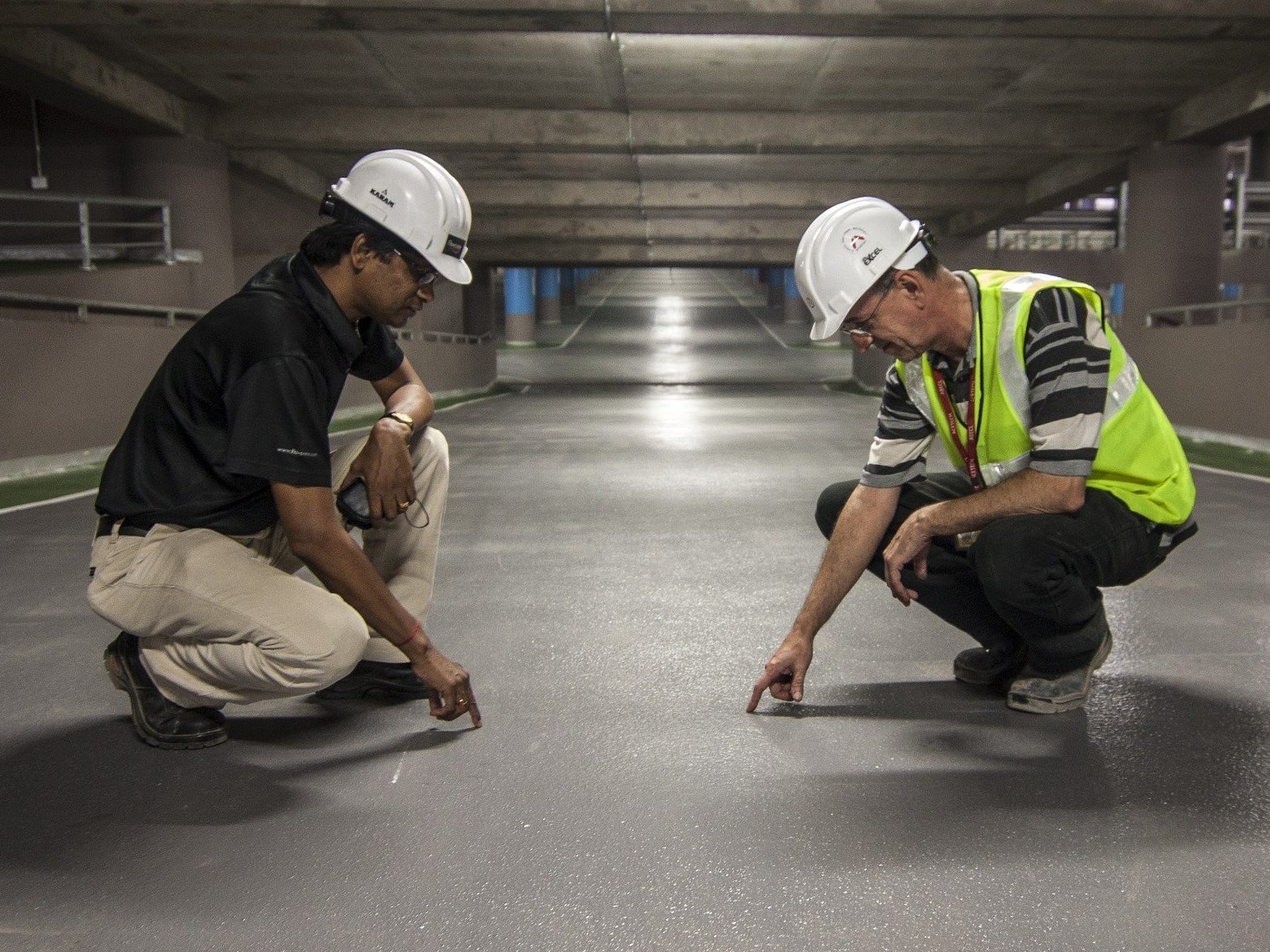Recognizing the Various Applications of General Engineering Concrete in Diverse Industries
When you consider the lots of means general engineering concrete effects different sectors, you'll find its applications are both wide and important. From supplying strong structures for transport networks to supporting ingenious energy options, this product plays a key duty fit our framework. Yet what concerning its impact on city growth and ecological design? Exploring these facets can disclose far more than you could anticipate.
The Duty of Concrete in Construction and Structure Projects
Concrete plays a necessary function in building and building jobs, making up about 70% of all products utilized in contemporary frameworks. You'll discover it in foundations, wall surfaces, and floorings, offering strength and sturdiness. When you choose concrete, you're choosing a material that can endure weather problems, withstand fire, and support heavy loads. Its flexibility permits different applications, from property homes to imposing skyscrapers.Mixing concrete with ingredients can boost its buildings, improving workability and setting times. You can also mold and mildew it into various shapes, permitting for creativity in layout. As you work on your projects, take into consideration the ecological benefits of using concrete, such as its capacity to reduce power usage in buildings. In general, concrete's integrity and adaptability make it a cornerstone of the construction industry, guaranteeing that frameworks are not just practical however additionally safe and durable.
Facilities Growth: Roads, Bridges, and Passages
When it comes to framework advancement, roadways, bridges, and tunnels are critical parts that attach areas and assist in transport. You rely on these frameworks daily, whether you're commuting to function or traveling lengthy ranges. General engineering concrete plays a necessary duty in their building and resilience. Its strength and convenience enable engineers to make robust roads that hold up against heavy traffic and extreme climate conditions.Bridges, frequently spanning rivers and valleys, need specifically formulated concrete to ensure safety and security and long life. Making use of strengthened concrete in tunnel building not just sustains significant weight however additionally boosts resistance against water infiltration and ground motion.

Concrete in Transport: Enhancing Movement and Safety And Security
As you browse via dynamic cities and country roads, the role of concrete in transport comes to be evident, substantially boosting both mobility and safety. Concrete's toughness guarantees that roads, paths, and bridges hold up against rush hour and extreme weather. This long life reduces the need for constant repair work, keeping your trips smooth and reliable.In enhancement, the layout flexibility of concrete permits innovative frameworks like overpasses and tunnels, which properly decrease congestion and improve traffic flow. You'll discover that concrete surface areas additionally offer far better grip, lowering the likelihood of crashes in damp conditions.Moreover, making use of concrete in railways aids maintain stability and security for trains, making your journeys more efficient. In general, concrete's payments to transport not just enhance your mobility however additionally considerably reinforce public safety and security, reflecting its crucial function in the framework you depend on everyday.

Power Market Applications: From Power Plants to Renewable Power
In the energy market, concrete plays a significant duty in the building and procedure of nuclear power plant and renewable energy installations. You'll locate it crucial for constructing strong structures, supports, and containment structures that withstand severe conditions. In thermal power plants, enhanced concrete structures guarantee security and sturdiness versus heats and pressure. West Coast GE Concrete contractors.When it pertains to eco-friendly energy, concrete is imperative for wind turbine bases, photovoltaic panel installs, and hydroelectric dams. It offers the stability required to harness power properly. You might not realize it, however the concrete utilized in these applications is particularly created to meet particular performance requirements, like longevity and resistance to environmental factors
Innovative Concrete Solutions in Environmental Engineering

The Influence of Concrete on Urban Advancement and Landscape Design
Concrete plays an essential role in forming metropolitan advancement and landscaping, influencing everything from framework toughness to visual allure. When you consider cityscapes, concrete frameworks like bridges, roadways, and buildings come to mind, offering a durable foundation for city life. You'll see just how properly designed concrete paths and plazas boost public areas, making them a lot more welcoming and functional.In landscape design, concrete deals versatility, enabling creative layouts for patios, retaining wall surfaces, and decorative features. You can produce distinct exterior spaces that mix seamlessly with nature while preserving architectural stability. Furthermore, concrete's capacity to withstand weather extremes guarantees durability, minimizing the need for frequent repair services.
Future Fads and Advancements generally Design Concrete
As urban landscapes develop, the need for ingenious concrete services is driving innovations as a whole design. You'll see trends leaning towards environment-friendly materials and sustainable practices. Researchers are concentrating on developing high-performance concrete that reduces environmental influence without compromising strength.Next-gen additives and blends, like recycled accumulations and bio-based materials, are acquiring grip, improving sturdiness and reducing carbon impacts. Smart concrete technology is also arising, including sensors that keep an eye on structural health in real-time, permitting for positive maintenance.You could find that 3D printing with concrete is coming to be extra viable, making it possible for intricate designs and faster building timelines. In addition, the integration of self-healing concrete gets on the rise, guaranteeing long life and minimizing repair expenses.
Regularly Asked Inquiries
What Are the Ecological Effects of Concrete Production?
Concrete production creates significant carbon emissions, consumes water, and depletes natural resources. You can alleviate these influences by discovering lasting choices, see this here maximizing mix styles, and integrating recycled products to lower your ecological impact and boost sustainability.
Just How Does Concrete Contrast to Other Structure Materials?
Concrete's durability and strength typically outperform materials like wood and steel. It's versatile, this hyperlink affordable, and energy-efficient, however its environmental effect can be considerable. You'll wish to weigh these elements when choosing building materials.
What Are the Different Kinds Of Concrete Available?
There're numerous kinds of concrete offered, including criterion, strengthened, high-strength, lightweight, and ornamental. Each type serves specific purposes, so you can choose the one that ideal fits your task's requirements and needs.
How Is Concrete Recycled and Recycled in Construction?
You can reuse concrete by squashing it right into accumulation, which you after that reuse in brand-new building jobs (West Coast General Engineering Concrete). This process minimizes waste, decreases costs, and lessens the ecological impact of sourcing new products for your builds
What Safety Procedures Are Required When Dealing With Concrete?
When working with concrete, you must put on safety gear, like gloves and goggles, warranty correct ventilation, and use risk-free training strategies. Constantly follow safety guidelines to avoid injuries and keep a protected functioning setting.
Comments on “West Coast General Engineering commercial concrete: The Complete Guide to Performance in Commercial Construction”